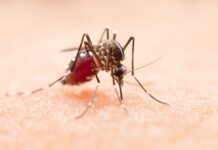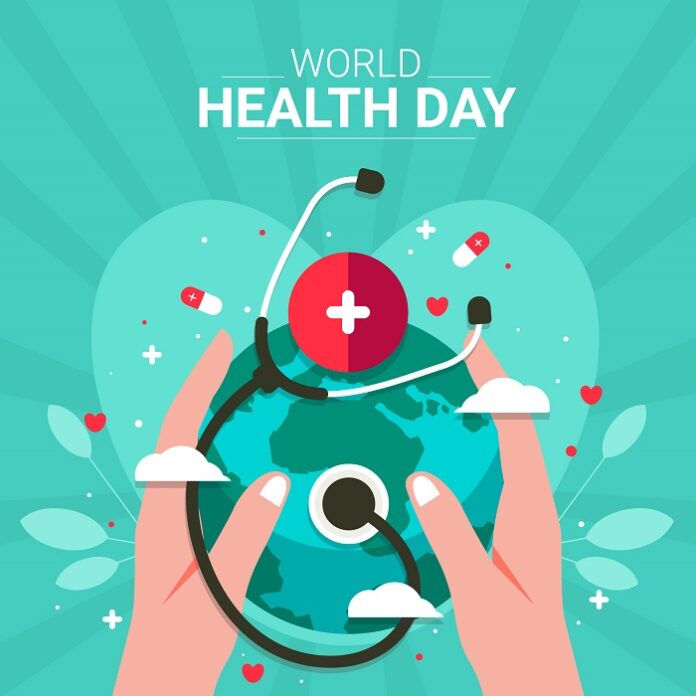Abstract
World Health Day, 2025, is focussing on maternal and newborn health with a campaign, titled healthy beginnings, hopeful futures, with the endeavour of making governments and various health communities to strive to end preventable maternal and newborn deaths, and to prioritize women’s longer-term health and well-being. Support for maternal and newborn health needs to begin well before pregnancy and continue long after childbirth. The foundation of a healthy pregnancy starts with a woman’s overall health that includes access to high quality obstetric care, nutrition, vaccinations, managing associated health conditions, mental health support, and improving education and awareness of women and their families.
Keywords: World Health Day, Maternal health, Newborn care, pregnancy, woman’s health
Introduction
World Health Day is celebrated on 7 April every year, marking the founding of the World Health Organization (WHO) in 1948. This day serves as a reminder of the global commitment to improving health outcomes for all, regardless of socio-economic status. In 2025, the focus will be on a year-long campaign on maternal and newborn health. The campaign, titled healthy beginnings, hopeful futures, will urge governments and the health communities to ramp up efforts to end preventable maternal and newborn deaths and to prioritize women’s longer-term health and well-being.1
Global and Indian Scenario
According to currently published estimates, around 300,000 women lose their life due to pregnancy or childbirth each year, while over 2 million babies die in their first month of life and around 2 million more are stillborn.1 This is roughly 1 preventable death every 7 seconds. Based on current trends, a staggering 4 out of 5 countries are off track to meet targets for improving maternal survival by 2030, and 1 in 3 will fail to meet targets for reducing newborn deaths.
India has made significant progress in reducing maternal and newborn deaths, with the Maternal Mortality Ratio (MMR) declining from 130 per 100,000 live births in 2014-16 to 97 in 2018-20, and the Neonatal Mortality Rate (NMR) from 46 to 22 per 1000 live births between 1997 and 2019.2
Efforts and Need Gaps
All women need access to antenatal care in pregnancy, skilled care during childbirth, and care and support in the weeks after childbirth. The Government of India has been focusing on initiatives to improve maternal health indicators, and much progress has been made in ending preventable maternal deaths in the past two decades. However, coverage of life-saving health interventions and practices remains low due to gaps in knowledge, policies and availability of resources, and urban-rural divide. In India, access to health services is often dependent on a families’ or mother’s economic status and where they reside.
Women and families everywhere need high-quality care that supports them physically and emotionally, before, during and after birth. Health systems must evolve to manage the many health issues that impact maternal and newborn health. These not only include direct obstetric complications but also mental health conditions, noncommunicable diseases and family planning.
The Government of India, along with organizations like the UNICEF and WHO have made commendable strides including implementation of the policy that every delivery should be attended by a skilled health care provider in a health care facility, and improving health and nutrition of mothers-to-be and providing quality maternal and new-born health services through a continuum of care approach. All pregnant mothers must register for antenatal care at the nearest health facility as soon as aware of the pregnancy to assure healthy progress of their pregnancy and timely identify high risk issues affecting their health or their baby’s well-being. Emphasis is on improving access to family planning, improved management of normal delivery by skilled attendants, access to emergency obstetric and neonatal care when needed, and timely post-natal care for both mothers and newborns.
The Pradhan Mantri Surakshit Matritva Abhiyan (PMSMA) launched by the Ministry of Health and Family Welfare, provides a fixed day for assured, comprehensive and quality antenatal care free of cost to pregnant women on the 9th of every month.3 This Programme strengthens antenatal care detection and follow up of high-risk pregnancies, contribute towards reduction of maternal deaths and reduce the MMR of India. The Janani Shishu Suraksha Karyakaram (JSSK) scheme encompasses free maternity services for women, babies and young children, a nationwide scale-up of emergency referral systems and maternal death audits, and improvements in the governance and management of health services at all levels.4
By 2030, India aims to reach a Maternal Mortality Ratio of 70 per 100,000 live births, and end preventable deaths of newborns and children under 5 years of age, aiming to reduce neonatal mortality to at least as low as 12 per 1,000 live births and under-5 mortality to at least as low as 25 per 1,000 live births5. Support for maternal and newborn health needs to begin well before pregnancy and continue long after childbirth. The foundation of a healthy pregnancy is addressing the needs of women, ensuring that they receive both physical and emotional care, with the measures mentioned below.
Education and Awareness: It is important to educate women about the importance of maternal health, regular check-ups, and healthy lifestyles, knowledge about safe pregnancies, recognizing warning signs, and preparing them on expectations during childbirth.
Access to high quality healthcare: This includes
- Obstetric care includes antenatal care, safe delivery practices, and skilled professionals who can manage delivery and its complications effectively. Timely medical intervention can prevent haemorrhage or preeclampsia, which are leading causes of maternal death.
- Co-morbid conditions such as diabetes, hypertension, and obesity can increase the risks associated with pregnancy, and should be managed effectively to ensure the best outcomes.
- Vaccinations needed during pregnancy should be addressed effectively.
- Nutritional requirement with a healthy balanced diet, iron-calcium and B12/folate supplementation, and timely healthy meals can greatly help reduce pregnancy risks and improve new born weight and health.
- Mental healthcare is vital before, during, and after pregnancy for the mother’s recovery and her ability to bond with her newborn. Mental health support is especially crucial during postpartum depression, anxiety, and other mental health conditions that affect new mothers, and are often unrecognized and untreated.
Family Support from family members is equally crucial. Encouraging a strong family bond and involving fathers and other family members in prenatal care and postnatal support ensures a more holistic care of mother and newborn, and their better health.
Conclusion
To achieve the global goal of improving maternal health and to save the life of women and new-borns, we need to do more to reach those who are most at risk, such as women in rural areas, urban slums, poorer households, adolescent mothers, women from minorities and tribal, and lower/vulnerable social strata.
References
- WHO [Internet]. World Health Day 2024. Accessed April 1, 2025. Available from https://www.who.int/campaigns/world-health-day/2025
- UNICEF [Internet] Maternal Health. Accessed April 1, 2025. Available from https://tinyurl.com/6nt57r4x
- Ministry of Health and Family Welfare. The Pradhan Mantri SurakshitMatritva Abhiyan (PMSMA). Accessed April 1, 2025. Available from https://pmsma.mohfw.gov.in/
- National Health Mission [nhm.gov – internet] Janani-Shishu Suraksha Karyakram. Accessed April 1, 2025. Available from https://nhm.gov.in/index1.php?lang=1&level=3&sublinkid=842&lid=308
- Maternal New Born and Child health [ihat.in – internet]. 2030 goals. Accessed April 1, 2025. Available from https://www.ihat.in/maternal-newborn-and-child-health/
1Chief Editor, The Indian Practitioner, and Medical Director, Dr Varsha’s Health Solutions, Mumbai. (Corresponding Author– info@drvarsha.com)
2Consultant Gynaecologist and Obstetrician, Farooquis Polyclinic, Bandra west, and Thunga STH Hospital, Andheri west, Mumbai.


























